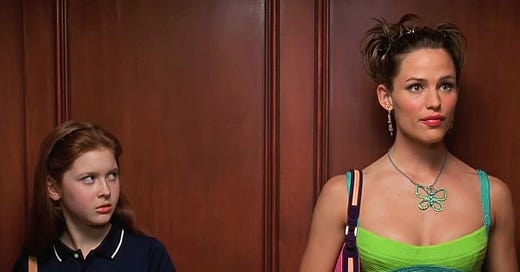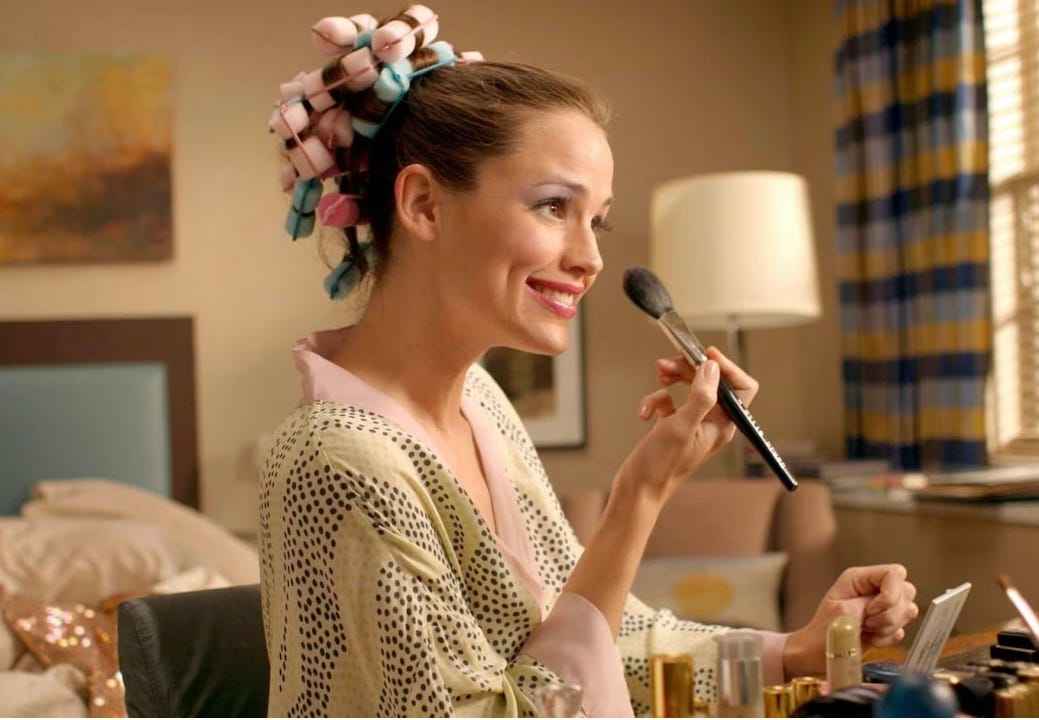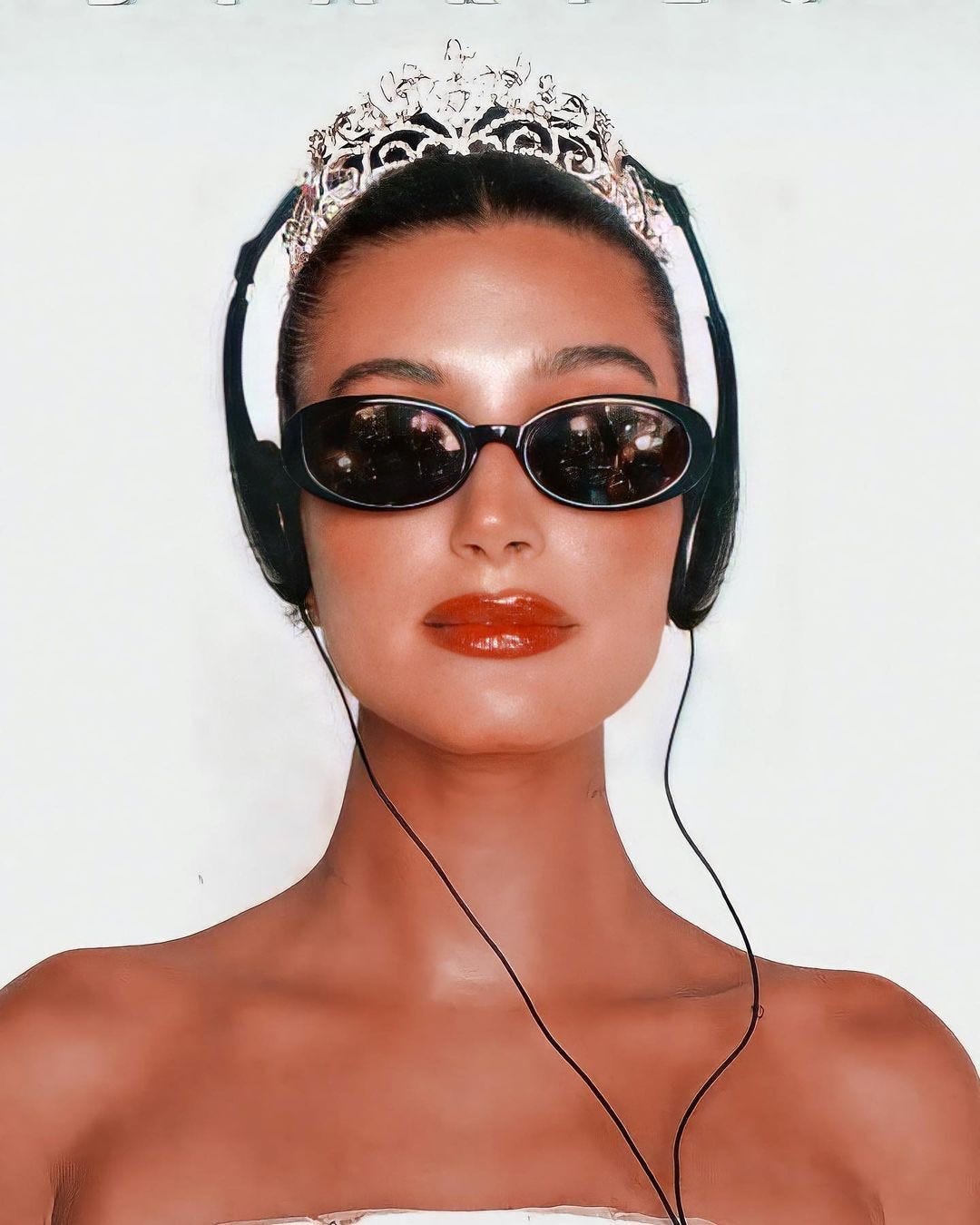What Is The Right Age To Start Wearing Makeup?
Teens are turning to pro makeup artists and 7-year-olds have daily makeup routines—is there really a 'right' age to start wearing makeup?
I didn’t start wearing makeup until my late teens - if you can even call it that. Mascara and lip gloss were about the extent of my experimentation. Today, I find myself impressed and simultaneously humbled by the makeup skills of young teens, who could easily outshine not only my early attempts but likely my most glamorous looks today. Historically, makeup was reserved for adults or tied to special occasions, depending on cultural norms. In many societies, it was a marker of adulthood, worn during ceremonies or rites of passage. Children, particularly young girls, were not expected to engage with beauty products until well into adolescence, or even adulthood.
In contrast, today our relationship with makeup has evolved into something far more inclusive - and complex. Makeup has been democratised; it’s become a form of self-expression that transcends age. Recently, I read an article on Dazed Digital about teens hiring professional makeup artists for their first day of school. Initially, it seemed extravagant - professional makeup for a school day? It felt surreal. Yet, it’s a reflection of our current beauty landscape. The shift in attitudes towards makeup, especially among younger generations, is undeniable. Which raises the question: When is the right age to start wearing makeup?
”It’s become more popular this 2024 school year,” she says. ”I’ve done it for about 12 girls so far, all high school seniors aged from 16 to 18-years-old.” As told to Dazed by Brianna Dyer, a make-up artist in New Orleans.
As ludicrous as this trend might seem, it opens up a broader discussion about societal pressures and the forces pushing young children to alter their appearance. I don’t look further than my younger cousins, whose makeup skills rival any professional’s, with kits packed with products you’d expect from seasoned artists. Young children are building relationships with beauty products earlier than ever, reinforcing the idea that makeup is an essential component of identity.
Hiring a makeup artist for the first day of school might seem like an indulgence, but it symbolises a bigger shift in how beauty, status, and self-worth are interconnected. For some teens, this ritual might feel empowering - a rite of passage into adolescence. But for many, it marks the beginning of a complex journey of conforming to societal expectations.
Social media has undoubtedly amplified these pressures. Platforms like Instagram and TikTok are rife with makeup tutorials, transformation videos, and beauty hacks, many aimed at a younger audience. Algorithm-driven content bombards children's feeds, constantly placing beauty at the forefront of social value. Psychologists have long warned of the damaging effects of unrealistic beauty ideals on self-esteem, and studies show that even young children are not immune. Whether it’s achieving flawless skin, sculpted cheekbones, or voluminous lashes, these ideals can quickly shift from playful experimentation to becoming necessary steps in our routines and mask for insecurities.
Imagine having Hailey Bieber as your beauty standard at just 10 years old.
This constant exposure contributes to what social scientists call social comparison theory, where people evaluate their worth by comparing themselves to others. When children see perfectly curated makeup looks on influencers, they measure their own appearance against these polished, often unattainable standards. The widespread use of filters and editing tools only deepens the divide between reality and fantasy, making these ideals seem not just desirable but achievable - and necessary.
What was once fun, creative play has started to feel like an expectation. For many young people, makeup has shifted from a personal choice to a social obligation, where adhering to beauty standards feels like the price of social acceptance. The beauty industry has been quick to capitalise on this trend. Brands now market directly to children, often enlisting young influencers as ambassadors. Consequently, we’re seeing a new generation of beauty consumers emerge, shaped by a potent mix of peer influence and corporate marketing. Makeup is no longer just a tool for self-expression; it’s becoming a means of survival in an appearance-driven world.
The ethical concerns surrounding this commercialisation are major. Studies show that when children are exposed to commodified beauty standards, they experience an accelerated transition into adolescence, adopting adult behaviours at younger ages. This premature “adultification” can have severe impacts - anxiety, stress, and dissatisfaction with one’s natural appearance are all too common as children internalise the pressure to conform to idealised beauty norms.
So, when is the right age to start wearing makeup? There’s no straightforward answer. Makeup can be a powerful tool for self-expression, creativity, and fun, but in a world where beauty standards are increasingly out of reach, we need to have tough conversations about whether children are being pressured into makeup too soon. Has the joy of experimentation been overshadowed by the need to fit in? Is it about ensuring that makeup remains a choice rather than a requirement? What responsibilities do brands and the industry as a whole have? And how do we protect children from the harmful effects of unrealistic beauty standards while still allowing them the freedom to explore?
As the lines between childhood and adulthood blur, finding that balance is becoming increasing crucial. Children should be free to experiment with creativity, but safe from crushing pressures to present in a certain way.






